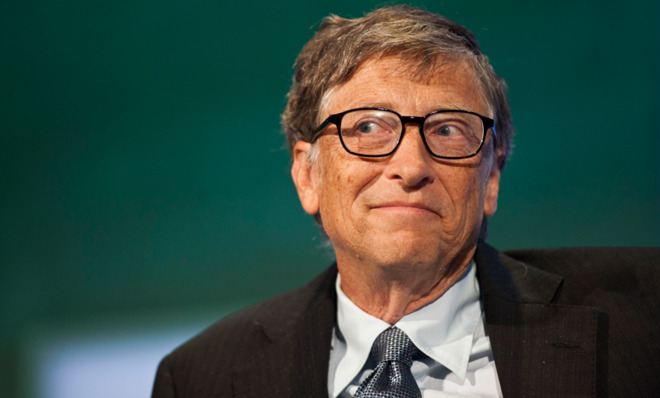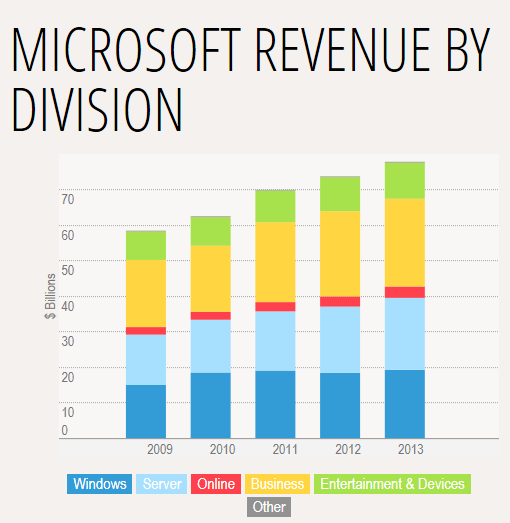Why Microsoft should cheer Bill Gates' return
Microsoft’s business remains strong, but Gates can help push the company into a new era

The confirmation this week that Satya Nadella — a 22-year Microsoft veteran — will be the company's new CEO has been somewhat overshadowed by the return of Bill Gates. Microsoft's founder and former CEO — who also happens to be the richest man in the world — will take a position on the board as a technology adviser. Gates spent the last 14 years as Microsoft's chairman, but concentrated mostly on charitable initiatives through his foundation.
While some voices have called for Microsoft to introduce new blood, the return of Gates may represent the best of both worlds for the company: a figure steeped in company tradition who also has a record of innovation.
The state of Microsoft today is quite mixed. When Gates bowed out as CEO in 2000, Microsoft software ran 93 percent of consumer computers worldwide, an amazing show of dominance. Today, following the advent of smartphones and tablets that mostly run on non-Microsoft software, that figure is just 20 percent.
The Week
Escape your echo chamber. Get the facts behind the news, plus analysis from multiple perspectives.

Sign up for The Week's Free Newsletters
From our morning news briefing to a weekly Good News Newsletter, get the best of The Week delivered directly to your inbox.
From our morning news briefing to a weekly Good News Newsletter, get the best of The Week delivered directly to your inbox.
Windows and Office are not the all-encompassing software ecosystem they once were. Consumers and businesses today are stepping away from Microsoft's products and toward Google's Android, Chrome OS, and Docs, and Apple's iPad, OSX, and iWork, among others. Microsoft's attempts to compete against these upstart products — notably, its Surface tablets, a tablet-friendly Windows 8 operating system, and the Bing search engine — have been relative flops, although its Xbox platform has grown into a market leader.
But on the other hand, Microsoft isn't limited to the consumer space. Microsoft is still a very profitable business, and revenues continue to grow, especially in its business and server divisions, which are becoming increasingly important as more services move into the cloud:

Gates' homecoming, then, is hardly on the order of Steve Jobs' return to an ailing Apple, or Yahoo founder Jerry Yang's less-than-successful return to a floundering Yahoo. Google and Apple — not to mention social media sites like Facebook — might have taken sexier and more eye-catching paths in the last few years. But under Gates' successor Steve Ballmer, Microsoft continued to capitalize on its strengths and bring home the bacon.
Still, Gates' return is an important event. No one can deny that Microsoft has missed the boat on some of the most explosive trends in the computing industry of the last few years. And while Windows and Office remain profit powerhouses, Microsoft will need to be nimble and clever to stay ahead of the game as the industry continues to evolve. Google and Apple now offer their operating systems and office suites for free with their hardware, a decision that has the potential to seriously undermine Microsoft's business model. How can Microsoft fight back?
A free daily email with the biggest news stories of the day – and the best features from TheWeek.com
Well, probably not by offering Office and Windows for free, at least not yet. As long as businesses are willing to pay good money for that software, Microsoft should keep charging for it, and invest the profits in developing new products.
Microsoft alienated a lot of users with Windows 8, a confused operating system designed for both tablets and traditional PCs that ditched many of the core features Windows users are familiar with, such as the Start menu. Ultimately, Windows 8 should have been a tablet and smartphone operating system (like iOS), not a desktop one. Instead of messing with a successful formula, Microsoft should focus on maintaining its core products, while reserving its innovation for products that fill new technological functions, much the way Apple did with the iPod and iPhone.
Both Google (with its Glass) and Apple (with its iWatch) are swiveling toward wearable technology. That's one avenue worth pursuing. Perhaps Microsoft could start incorporating its innovative Kinect motion-sensing technology into laptops, tablets, and smartphones. Microsoft could also look at 3-D printing and other areas of home manufacturing, or delve into renewable energy, like Google.
Acquisitions may be the best route for this — there are lots of small companies with powerful and potentially profitable technologies that a cash powerhouse like Microsoft can buy.
There are some signs Microsoft is going in the right direction — it has already begun building Cortana, a voice-based personal assistant akin to Apple's Siri. While that isn't groundbreaking, it is the kind of feature that, if implemented well, could really improve Microsoft products without disrupting the basic user experience in the way that Windows 8 did.
As technology adviser, Gates is well-placed to push the company in this new direction. Whether he will succeed remains to be seen, but after the stunning success he achieved in the 1990s, it would be unwise to underestimate him.
John Aziz is the economics and business correspondent at TheWeek.com. He is also an associate editor at Pieria.co.uk. Previously his work has appeared on Business Insider, Zero Hedge, and Noahpinion.
-
 Will SpaceX, OpenAI and Anthropic make 2026 the year of mega tech listings?
Will SpaceX, OpenAI and Anthropic make 2026 the year of mega tech listings?In Depth SpaceX float may come as soon as this year, and would be the largest IPO in history
-
 Reforming the House of Lords
Reforming the House of LordsThe Explainer Keir Starmer’s government regards reform of the House of Lords as ‘long overdue and essential’
-
 Sudoku: February 2026
Sudoku: February 2026Puzzles The daily medium sudoku puzzle from The Week